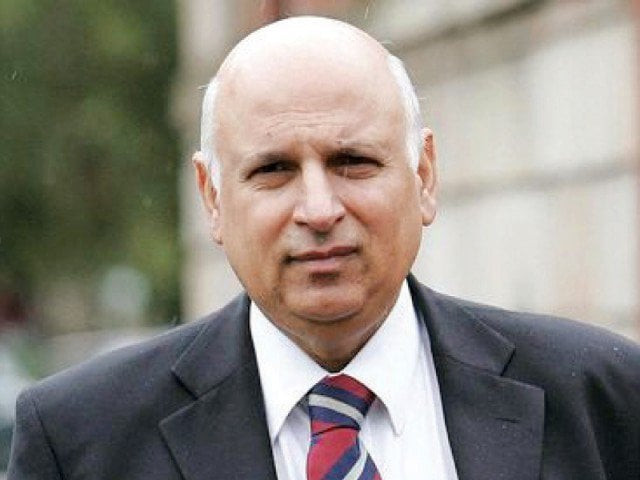PTI has saved country from defaulting: governor
Governor says Pakistan had taken benefit of $15 billion from GSP+ scheme

Chaudhry Muhammad Sarwar. PHOTO: FILE
He was speaking to a select group of journalists on Wednesday.
The governor said Pakistan had taken benefit from the $15 billion from the Generalised System of Preferences (GSP+) scheme. The government was expecting that this figure would double during the PTI regime following a reduction in energy tariffs for the manufacturing sector and other interventions.
The Kartarpur Corridor initiative of Prime Minister Imran Khan had given a very positive message to the world, said Sarwar. He added that he recently met with Sikh community members and they were delighted with Imran Khan's government. He said Sikhs were willing to invest in the renovations of their religious sites and the development of allied infrastructure.
“Though the Indian government's response was not encouraging, they had to surrender in front of the mounting pressure of the global Sikh community.” Sarwar said it was high time for Pakistan to gain benefit from this opportunity. “The Sikh community had a few justified demands, such as an increase in visa duration and its quota. To this, Islamabad is reacting positively as it will benefit both sides,” he said.
Sarwar said the government aimed to provide clean drinking water to five million citizens by December 2019, with the help of nongovernmental organisations (NGOs) and philanthropists. “The entire population of Punjab would be provided clean drinking water during PTI's term in power,” he added.
The governor highlighted that unclean or contaminated water had adverse effects on human health. "In collaboration with private organisations, we carried out medical tests in Faisalabad, Chinniot, and Jhang police lines. We found out that around 20% of the officials were infected with hepatitis. The situation was really alarming as in several areas this percentage was even higher mainly because of waterborne diseases.
"During my recent visit abroad, I have gathered donations of Rs300 million that were sufficient to cover the expenses of 150 water filtration plants that would be installed in different districts of the province. The government had already initiated a process to form the Aab-e-Pak Authority to regulate water schemes," he said.
Besides the installation of clean drinking water, he pointed out that water conservation was also vital to address this problem. "I have already instructed all vice chancellors of universities to ensure the provision of clean drinking water to students and their employees. The vice chancellors have also been directed to convert their campuses on solar energy to reduce the burden on the power grid.
The governor said that the government was trying to develop a conducive environment for the business community. "At present, businessmen and investors are feeling threatened and reluctant to increase their investments. However, with all these interventions the government believes that it would successfully attract around $7 billion but it will take some time as the government is trying to restore investors' confidence."
Responding to a question, he said there were no differences between Pakistan Muslim League (PML-N) and the PTI leadership. "The PTI and the PML-N had formed this alliance before general elections. All such alliances go a long way."
He went on to say that the PTI government was trying to improve governance by introducing reforms in the state departments. "It will fulfill its commitment to stand against corruption and the government has proved it in Sahiwal tragedy and other affairs."



















COMMENTS
Comments are moderated and generally will be posted if they are on-topic and not abusive.
For more information, please see our Comments FAQ